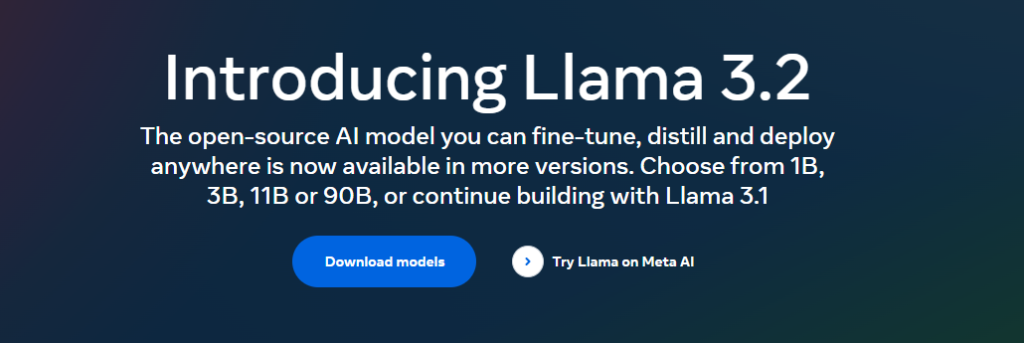
Llama AI Models for Government Use and Global Expansion for National Security
Meta has announced that it is making its Llama AI models for national security available to government agencies and defense contractors. This strategic move allows key companies such as Amazon Web Services (AWS), Microsoft, and Oracle, along with defense giants like Palantir and Lockheed Martin, to integrate AI into critical national security projects. This partnership aims to boost operational efficiency and support more intelligent decision-making within government operations.
What is Llama AI for Government Use?
Llama AI is a set of large language models (LLMs) developed by Meta (formerly Facebook). These models help process and generate human-like text. By making Llama AI models available for government contractors, Meta is ensuring these agencies have the latest AI technology to improve security measures and optimize workflows. Llama AI can be used for everything from automating document analysis to improving communication between teams working on sensitive national security issues.
Meta’s Move to Offer Llama AI to Defense Contractors and Government Agencies
Meta’s announcement about offering its Llama AI models to government agencies builds on the company’s vision to participate in the AI arms race. Meta’s CEO, Mark Zuckerberg, mentioned this new partnership during a recent earnings call, emphasizing the importance of adopting Llama AI for national security purposes.
For example, Oracle is using Llama AI to quickly summarize and analyze aircraft maintenance records, reducing the time needed for technicians to diagnose and repair planes. AWS and Microsoft are working with Meta to host these models on secure cloud platforms, ensuring that government data remains protected while using these powerful AI tools.
Meta Llama AI Models Expand Globally to Support National Security
Meta isn’t just focusing on the U.S. government. The company has also made Llama AI models available for use by contractors and governments in the UK, Canada, Australia, and New Zealand. This global expansion of Meta’s Llama AI ensures that allies of the United States are also benefiting from these advanced AI tools in national security contexts. Meta believes this move is essential to keeping American technology competitive in the global AI race.
Nick Clegg, Meta’s President of Global Affairs, stated that having open-source AI models like Llama for governments is crucial for strengthening democratic values and ensuring the U.S. and its allies lead the way in global AI development.
Key Terms Explained:
- Llama AI: A suite of large language models (LLMs) developed by Meta. These models are designed to process large amounts of data and generate natural, human-like text. They can be used in many sectors, including government, healthcare, and the defense industry, to automate tasks and support decision-making.
- Large Language Models (LLMs): AI models that are trained on vast amounts of text data. They understand and generate text, which makes them useful for tasks like summarizing documents, automating customer service, and performing complex data analysis.
- Open-Source Models: AI models whose code is made publicly available for anyone to use or modify. Meta’s Llama models are open-source, which makes them flexible for customization in different industries, including defense and government.
- AWS (Amazon Web Services): A cloud computing platform from Amazon. AWS is responsible for hosting and managing Meta’s Llama AI models for government use, ensuring that sensitive data remains secure.
- AI Arms Race: A term used to describe the global competition between countries to develop and dominate artificial intelligence technology. The U.S. and China are the key players in this race, with AI seen as critical to military and economic power.
Why OpenAI’s GPT Models Are Better Than Llama AI for Government Use
While Meta’s Llama AI offers powerful capabilities for defense contractors and government contractors, OpenAI’s GPT models (like GPT-4, the technology behind ChatGPT) are considered better in some important areas. Here’s why:
- Larger and More Diverse Training Data: OpenAI’s GPT models are trained on a broader and more diverse range of data, which allows them to handle a wider variety of topics and provide more accurate and detailed responses than Llama AI.
- Better at Natural Language Understanding: OpenAI GPT models excel at understanding and generating human-like responses. They are specifically designed for natural language processing and can produce clearer, more coherent outputs, especially when compared to Llama AI’s capabilities.
- Advanced Customization: OpenAI’s models are more advanced in terms of fine-tuning for specific use cases, including national security, healthcare, and education. Llama AI, while strong, is still developing in this area.
- Multi-Step Reasoning: GPT models are better equipped for handling complex queries that require reasoning across multiple steps. For national security applications, this ability is crucial for tasks such as intelligence analysis and decision-making.
- Broader Adoption in Industry: OpenAI’s GPT models are widely used across many industries, providing better integration with other systems used by governments and contractors. Meta’s Llama AI, while promising, has yet to achieve the same level of industry integration.
- More Languages Supported: OpenAI’s GPT models support more languages and perform better across those languages, which is a major advantage for international government and defense contractors working in different regions.
Meta’s Role in National Security and AI Development
Meta’s decision to open up Llama AI for defense contractors and government agencies is a significant step in bringing AI technology into national security. By offering AI models for government contractors, Meta is making it easier for defense and national security operations to process data more quickly and effectively.
However, when it comes to the best AI models for government use, OpenAI’s GPT models are often seen as the more advanced choice, particularly for tasks that require multi-step reasoning and natural language understanding.







